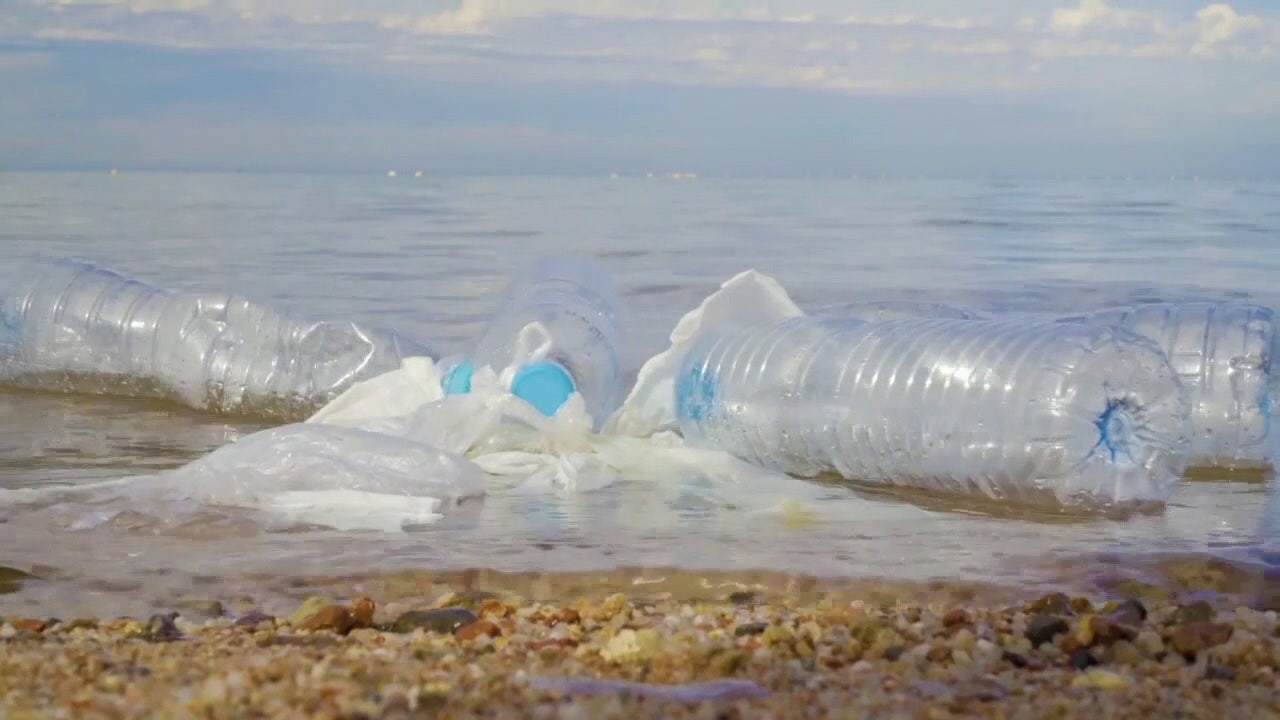A New Report Highlights the U.S. Plastic Pollution Crisis
A recent report has revealed that the United States is struggling to address the growing issue of plastic pollution, with many states receiving poor marks for their efforts. The findings have sparked concern among environmentalists and health professionals alike, especially as new research shows that microplastics are increasingly present in the human body.
The report was released by the Ocean Conservancy, an environmental non-profit organization, and it highlights the urgent need for action. According to the report, Florida, often referred to as the Sunshine State, received a score of 1.5 out of 5 stars for its current efforts in combating plastic pollution. This low rating underscores the significant challenges the state faces in reducing plastic waste.
The release of the report coincides with Plastic Free July, a global initiative encouraging individuals and governments to reduce their use of single-use plastics. This timing emphasizes the importance of collective action in addressing the issue of plastic pollution.
What Experts Are Saying
JP Brooker, the director of the Florida Conservation Program at Ocean Conservancy, emphasized the public’s desire for change. “Four out of five Americans want to see plastics addressed,” he said. However, despite this sentiment, the average score given to states remains low, with only 1.5 out of 5 stars.
Florida has made some progress in its efforts to combat plastic pollution. For example, the state has banned intentional balloon releases and allowed communities to ban smoking on beaches, both of which help reduce litter. However, Brooker pointed out a major obstacle: Florida prevents local governments from banning single-use plastic items such as bags and utensils.
Economic and Environmental Impacts
Brooker also highlighted the economic implications of plastic pollution, noting that it poses a threat to Florida’s economy. He advocated for Extended Producer Responsibility (EPR) laws, which have already been implemented in seven states. These laws require manufacturers to take responsibility for managing the waste they create.
This issue is not unique to Florida. The Ocean Conservancy’s report found that approximately 90% of states failed to meet basic standards for plastic waste reduction. “The U.S. is the world’s number one generator of plastic waste,” Brooker said. He called for a shift toward a circular economy, where plastics are reused and recycled rather than discarded.
The Global Context
The United Nations is currently working on global trade agreements aimed at reducing plastic pollution. This international effort reflects the growing recognition of the issue and the need for coordinated action.
Why It Matters
As new studies reveal the increasing presence of microplastics in the human body, health professionals are sounding the alarm. Dr. David Berger, a Tampa-based pediatrician, noted, “The problem is even worse now. It’s already in our water supply. It’s in our food. Even if people start avoiding plastics today, it’s still everywhere.”
The Ocean Conservancy’s report compiled the top ten items collected on Florida beaches. The top three items were:
- Cigarette butts
- Plastic bottle caps
- Food wrappers
Plastic straws ranked seventh on the list. Despite awareness campaigns, cigarette butts have remained the most common item collected for years, highlighting the ongoing challenge of changing public habits.
Ongoing Challenges
The report underscores the need for more comprehensive policies and greater public engagement in reducing plastic waste. As the issue continues to grow, it is clear that addressing plastic pollution requires a multifaceted approach involving government action, corporate responsibility, and individual choices.







